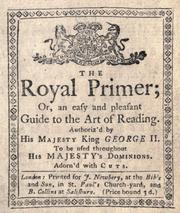The eavesdrop (originally called an eavesdrip) was the area onto which water would run off the eaves, or overhang, of a house's roof. In Anglo-Saxon times, the law required that buildings be situated at least two feet from the property line so that rainwater running off the eaves would not damage the neighbour's yard. With my house in Toronto, the wall of which is 4 inches from the property line, I'd be in big trouble.
The medieval English must have been an inquisitive lot, because by the 1400s we see reference to "eavesdroppers", i.e. people who lurk about in the eavesdrop so as to listen in on others' conversations. By the 1600s, this had been back-formed to a verb, "eavesdrop".
Now the question is, would that lurking person be standing under the eaves or, more logically, under one eave?
Unfortunately, we can't have a single eave in English. At least not any more. Originally, the Anglo-Saxon word efes WAS a singular noun. It just happened to end in -s (the plural was efesen). But, as we have seen before with skate, cherry, biceps and hero, apparently the English-speaking brain just cannot wrap itself around singulars ending in -s. So "eaves" came to be interpreted as a plural for which there is no corresponding singular.
Now, here's an eavesdropping situation (related by my correspondent) that could only happen in Canada:
"On the weekend, a friend was telling me about her next-door neighbour eavesdropping on a conversation between my friend and an eavestrough installer, which I thought was a funny "eaves" coincidence."
"Eavestrough" is the word we Canadians use for what other English speakers call a (rain) gutter. It's one of those words that Canadians are usually astounded to learn are unique to us. It seems to be of American origin (below is the earliest Canadian and American evidence I could find of it), but whereas Americans seem to have stopped using it, it is going strong in Canada, and has even produced the derivatives "eavestrougher" and "eavestroughing".
1876 Toronto Globe 22 July p. 8
At about one p.m. to-day, during a thunder storm, one of the lightning rod spires on the house of H. Watson, of Clearville, was struck and melted. A portion of the fluid passed from the conductor and followed the eaves-trough into a rain barrel.
1845 The Farmer's Magazine p. 516
Similar tanks should be made to receive the water from the eavestroughs of all the buildings in the farm-yard.
If any of my non-Canadian readers use "eavestrough", I would be happy to hear about it.
P.S.
If you find the English language fascinating, you might enjoy regular
updates about English usage and word origins from Wordlady. Receive
every new post delivered right to your inbox! If you are not already
subscribed, you can either:
use
the subscribe window at the top of this page
OR
(if
you are reading this on a mobile device): send me an email with the
subject line SUBSCRIBE at wordlady.barber@gmail.com
Privacy
policy: we will not sell, rent, or give your name or address to
anyone. You can unsubscribe at any point.
Follow
me on twitter: @thewordlady


